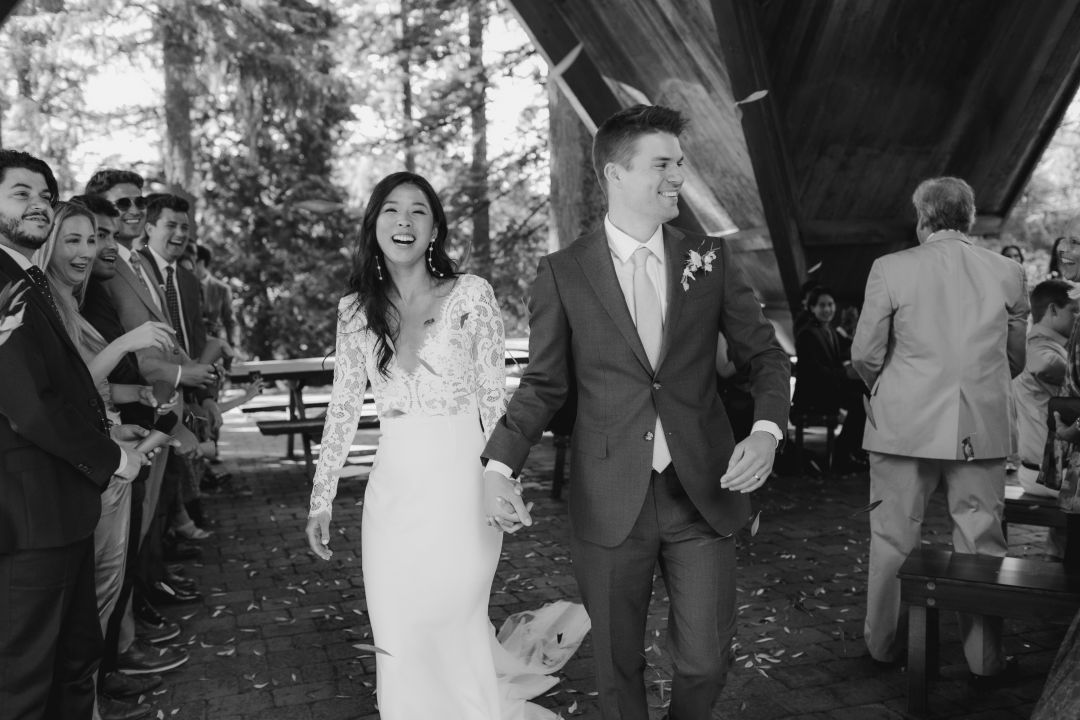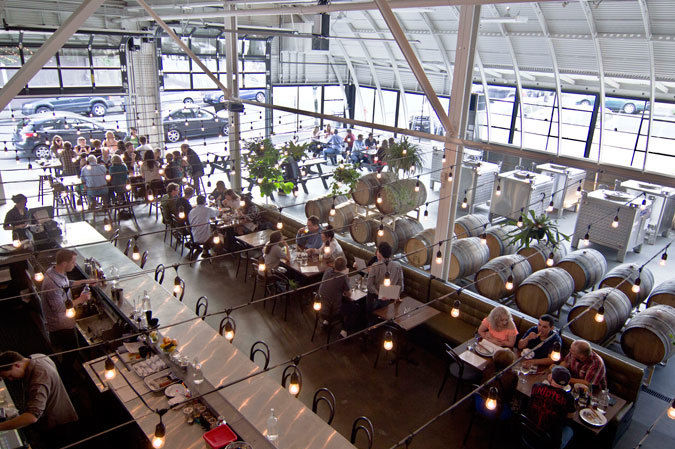With Pandemic Do-Over Celebrations, Oregon's Summer Wedding Season Is Busier Than Ever

Momo and Julian Ponsetto at their vow renewal at Hoyt Arboretum in May 2022, two years after they had originally planned to be there. They are part of a big wave of couples married during the pandemic who are having "sequel" parties this summer.
Momo and Julian Ponsetto were engaged way back in the spring of 2019, and they immediately hatched plans for a celebration at Hoyt Arboretum in Portland to take place in May 2020, with a reception to follow at Coopers Hall.
Reader, you’ve lived through the past two years. You know what happened next. Instead of a big party with all their far-flung friends in attendance, the two were legally married in a service at Ponsetto’s Boston-area childhood Catholic church on March 14, 2020, with only their immediate families to bear witness, just as the country was tipping toward a coast-to-coast lockdown.
They felt lucky to have been able to be married in front of family, especially as the earliest months of the pandemic unfolded, travel shut down, and many couples were wed with guests watching solely via Zoom. But still, the two wanted that larger gathering—or, as Julian Ponsetto put it, “You realize that you’ll never have so much power again, to bring all your friends together,” as on your wedding day.
So, a few weeks ago, at Hoyt Arboretum, they joined the growing ranks of couples having what the New York Times has called “sequel weddings,” do-over celebrations after years of pandemic delays. Now, as summer wedding season begins in earnest at Oregon vineyards, orchards, ballrooms and more venues, such second, catch-up celebrations are straining the seams of an already busy industry.
“For my clients right now, my Mays, my Junes, my Julys, I’m seeing a lot of this,” says Elisabeth Kramer, a wedding planner and day-of coordinator who has carefully tracked the ins-and-outs of weddings during the COVID era via her blog. (She is also the cofounder of Altared, a movement by vendors to humanize the wedding industry.) “They started planning in 2019 or 2020, and either got legally married and are having a larger celebration or they postponed, often two or three times, and now they are having their legal marriage.”
Momo and Julian Ponsetto say they are grateful to the Arboretum and Coopers Hall, both of which allowed them to keep rolling over their deposits until at last they could settle on a date, though they weren’t so lucky in all areas. Their original wedding planner left the industry, and their rehearsal dinner space closed down—recouping the deposit there took some doing.
They are both in medicine, and wanted to be careful and cautious with COVID, they say. But by this spring, they felt ready for what they decided to call a vow renewal. Every couple has their own spin on this; other clients of Kramer's, Traci White and Dale Johnson, married hurriedly in early 2020 after a cancer scare for White, and then had to repeatedly postpone a larger celebration due to COVID. They are now due to host what they are calling their “happily ever after” party next month at Barn Kestral in West Linn.
For the Ponsettos, having a second celebration gave them the chance to write their own vows and incorporate some Japanese traditions from Momo Ponsetto’s family, who live in Beaverton.
“A lot of our friends are scattered around and at different parts of their training, so it was really special to have just about everyone that you love all in one room,” Momo Ponsetto says. Even the weather, in this exceptionally rainy spring, cooperated: though showers had been forecast, things cleared up just in time for their ceremony.
Kramer says she’s still fielding lots of questions about COVID safety from couples and vendors alike, and that she’s advising couples to come up with a clear communication strategy for guests—stating in advance that they will or won’t be requiring indoor masks, for example, or asking for proof of a negative test before the big day.
Telling those present exactly what to expect has—anecdotally—resulted in a higher RSVP rate, and happier musicians, caterers, florists, and other on-site vendors, too, Kramer says. After all, the service and hospitality industry has been one of the hardest-hit in COVID, and many vendors are still struggling to hire enough staff.
Meanwhile, during the pandemic lives were still unfolding. One couple with whom Kramer had been working since 2019 had a baby during the pandemic; they were planning a big celebration in August of this year, but recently decided to call it off; their lives had changed, and a big bash no longer fit in. Others have had children and decided to incorporate them into the sequel wedding plans; there are a lot more babies in planning meetings now than there were in 2019, Kramer says.
“I have clients that I’ve been working with for three years at this point, for money they paid me several years ago,” Kramer says. “So there’s a real sense of, like, ‘I want to get there with you, too. Let’s get this done!”




